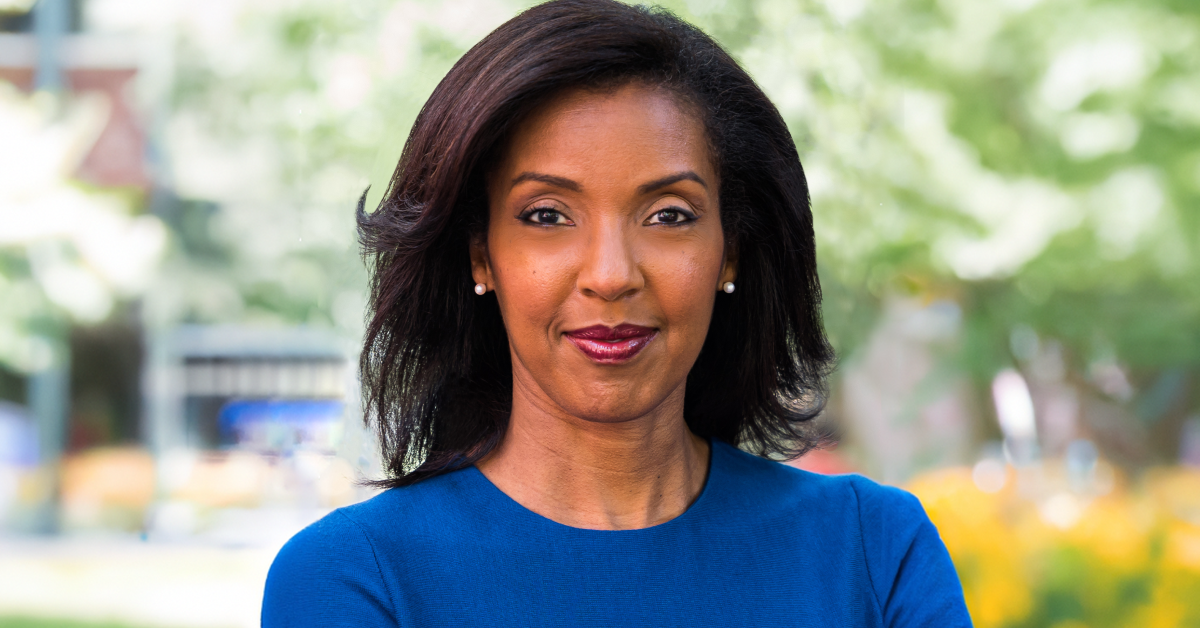Although she describes herself as "an accidental academic," Erika James has reached the pinnacle of leadership at one of the world's most influential business schools. When she was appointed dean of the Wharton School in 2020, she became the first woman and first Black person to hold the position in its 140+ year history.
James, who also sits on the board of directors at Morgan Stanley and SurveyMonkey, has been recognized as one of the "Top 10 Women of Power in Education" by Black Enterprise and as one of the "Power 100" by Ebony. In 2014, when she was appointed Dean at Emory University's Goizueta Business School, James made history as the first African American to hold that role, helping to grow the faculty by 25% during her six-year tenure.
Recently, the trained organizational psychologist-turned-academic leader sat down with Chief Member Dr. Felicia McGinty, former executive vice chancellor for administration and planning at Rutgers University, to share her perspective on the future of business — and what that means for business education.
On Coalescing Power to Make Impact
"Our students were asking, and demanding, and helping create opportunities for inclusivity. They wanted to talk about how we, The Wharton School, could be a more diverse and equitable place. We have this generation of faculty now who are right where our students are and recognize that we can't be the kind of society or country we need to be if we are leaving talent on the table.
"Right now we have both the faculty and the student population who are driving this work forward in so many important ways, so I just have to find ways to reduce the barriers that are prohibiting things from happening."
On Redefining "Business as Usual"
"You can obviously learn from positive examples and good things that are happening, but I think it's incumbent upon all of us to really learn and reflect on the lessons that we've experienced when things are hard, and difficult, and challenging. And we've been living through hard, difficult, and challenging now for almost two years. I share this with students anytime I'm giving a talk: If we think that the goal, having gone through this pandemic, is to return to business as normal, then we are setting ourselves up for failure, because the world has changed in so many fundamentally different ways.
"If the goal is to go back to something that no longer exists, then that's pretty problematic. I think we lose sight of the opportunity for innovation, and we lose sight of how we take the experiences we've gone through and identify ways to leverage them to create this new future. I think that's actually the work of real leadership — to begin to articulate what the new vision looks like. How do you take the skills that have been developed in the experiences we've all gone through in order to manifest that new vision?"
On Heading the First Elite MBA Program That Enrolled More Women Than Men
"I wish that I could singularly take the credit for that outcome, but this was work that was in place long before I arrived at The Wharton School. Our Admissions Team is incredible, and they recognized an opportunity to say, 'We know that there are talented women who care about and want to learn more about business and business education. So, what do we need to be doing to both expand the message of business and business education to populations of people who might not have considered this as a viable or desirable career option before? It's not a one-year blip. Now, we feel like we've got the foundation and we're just going to continue to see that kind of equity and equality in who has access to business education."
On Finding Your People
"I have a best friend from graduate school who is also a high-level academic leader. She's a president of a university, and we have gone through our careers in lockstep. The value of that relationship through the journey that we have been on, and our ability to sort of be there and support each other and understand what we've been going through, I think is incredible. So many people can't understand, or don't appreciate, or don't connect with what it is you're going through. Find that relationship that's going to help sustain you."
On the Give and Take of Mentorship
"One thing that I will say, as often as people will look for a mentor, mentors are also looking for something from you. If someone is going to invest their time and energy in you, they are expecting you to be able to reward them in some way. It's a mutual relationship, but I often think that we only really think about, 'What can I get from the mentor?' but not, 'What can I add to the mentor? What can I contribute to the mentor?' People are responsive and want to help those who recognize that the relationship is mutual. It's not just a give-and-take relationship."
On If MBAs Are Really Worth It
"I'm often asked the question, 'Is the MBA degree or is a business degree still relevant?' For people who ask that, I say, 'Of course it's still relevant.' I say that because business is so foundational to every productive society in the world. How we engage in commerce, and how we innovate and bring things to life, and deploy assets to help people in their lives — that's fundamentally what makes a society. So, the value of the degree is without question in my mind, but as the world changes and evolves, the degree must also change and evolve.
"We've got to pay attention to things like the role of technology in business now. We have to think about the future of finance. ESG wasn't something that you saw in business schools 10 years ago, but most business schools, if they have the resources, are equipping their faculty, and their students, and their curricula with content around ESG ethics."

